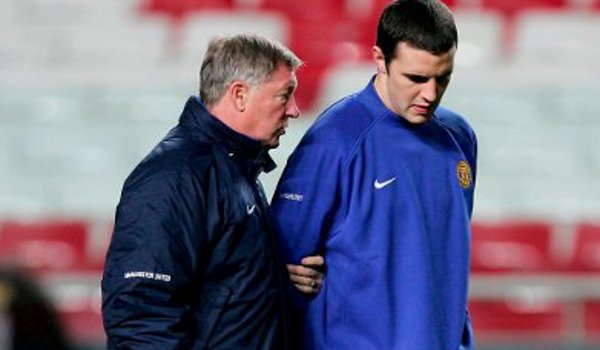FOR more than half a century now, it is hard to think of any Irish footballer who has been held in the same regard as John Giles.
Player, manager, pundit, the former Leeds United great is seen as the ultimate football man. His opinion — even though it is now being delivered nearly 40 years since he was at his peak — carries weight.
And those who dare question it get the rottweilers sent in. Eamon Dunphy, never shy of an opinion or two of his own, is Giles’ verbal bouncer.
Together, along with Liam Brady, the three RTÉ panellists tore strips off Cristiano Ronaldo earlier in his career until the Portuguese started scoring goals at such an incredible rate that he bought their silence.
By and large, though, the reason Giles gets listened to is because he is worth the attention. He knows the game inside out — even if his frequent references to the past undermine his views on the modern game.
Sometimes, though, even the great pundits get it wrong. Ask Alan Hansen about winning stuff with kids.
Of late, Giles has produced volume two of his memoirs, The Great and the Good, which is a fine walk through the ages, the soundtrack provided by Giles’ astute viewpoints on the spectacular players of different eras.
There is little to disagree with — except in one chapter, dedicated to the Irish players who have made their mark in the English and world game.
Again, Giles delivers largely generous verdicts but when it came to discussing John O’Shea, his dissection of the Waterford man’s career fell into the usual trap.
“I feel for the sake of his career, John should have moved from United earlier,” wrote Giles. “There is nothing better than playing week in and week out to make the most of your ability.”
These days, O’Shea gets that luxury with Sunderland. Now in his third season on Wearside, he is approaching a century of appearances for the club and has the bonus of knowing a trip to Wembley for the League Cup final is on the cards.
So surely Giles was right — that O’Shea was naive to stay at Old Trafford as long as he did?
Unless you checked the record books, your instinct would force you to agree. The image of O’Shea serving as “an understudy, happy to fill in at right back, centre back or midfield” is prevalent in so many football fans’ heads.
Bear in mind, though, that O’Shea won more trophies in his career than Giles, and way more than Liam Brady, Paul McGrath, Frank Stapleton and George Best — players Giles has no hesitation in calling great.
 Alex Ferguson's tactics meant that few players were regulars in the team
Alex Ferguson's tactics meant that few players were regulars in the teamMore to the point, he may not have been a regular at Old Trafford but in the last decade very few players were as Alex Ferguson perfected the art of rotating his squad to facilitate their annual charge for four trophies.
So whereas Sunderland’s fans are celebrating the fact they have a date at Wembley — their first League Cup appearance since 1985 and just their third appearance in any cup final since they last won a trophy in 1973 — a cup final appearance is nothing new to O’Shea.
During his Old Trafford years, he won five Premier League titles, the FA Cup, three League Cups, the Champions League and the 2008 FIFA Club World Cup.
So why walk away from that?
Why walk when the following statistics need to be considered? In his two full seasons at Sunderland, O’Shea has averaged 35 appearances.
At Old Trafford, from the year he made his breakthrough in 2002, through to the year of his departure, in 2011, he played less than 30 games just once — in the 2009/10 season, which was cut short in November with injury.
The year before, this “understudy” played 54 games for United, more than any other player on their books, more than Ronaldo, Vidic, Rooney, Scholes, Giggs, Ferdinand — even Van der Sar.
It wasn’t his only prolific season. In 2002/03, he featured in 52 games, five more than he managed the following season. He played 49 times in 2006/07 and 47 times in 2005/06.
In total, O’Shea played 392 games for United — only 30 players in their history managed more. David Beckham, for example, played only two more games than the Irishman; Nobby Stiles just three, Peter Schmeichel just seven and Denis Law just 11.
Tellingly, 92 of O’Shea’s appearances came off the bench yet that still leaves him at the 300-mark and still accounts for the fact he featured in major cup finals, the 2004 FA Cup final, the 2009 Champions League decider and those three successful League Cup finals.
Along the way, he played 83 Champions League games and you have to question the logic of those who suggest his career would have been better served away from Old Trafford.
Had he been used as sparingly as, say, Darron Gibson, you could understand the case for an O’Shea departure.
But in the modern game — where teams like United average 60 games per season, and where the physical demands make it practically impossible for the modern-day player to feature in each match — he was much more than a bit-part player.
That is not to say he was a true great. Giles’ assessment that he was “a good all round player” is just about right. But if he really was an understudy, then he was the busiest one in history.

